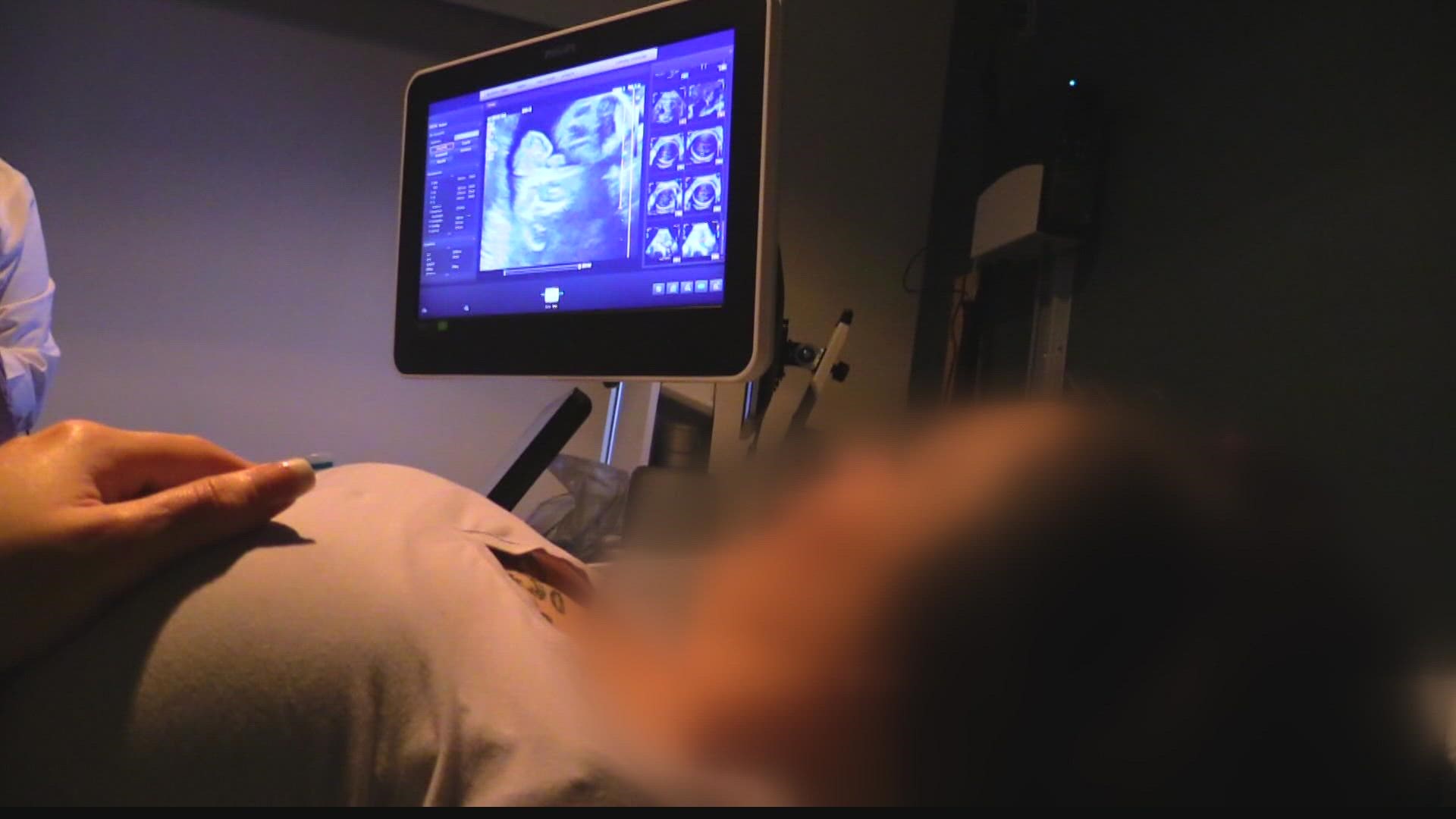INDIANAPOLIS — Indiana lawmakers are just weeks away from considering new abortion restrictions. While Hoosiers wait to learn exactly what lawmakers are planning on implementing, a ban on abortion in the state is expected to pass.
With uncertainty hovering over the state of Indiana now that the constitutional right to abortion has been overturned, many doctors are sharing concerns about the potential an abortion ban here could have on cancer patients.
"It's something that not a lot of people think about necessarily, because we have these images in our minds of the happy family at the time of delivery and a healthy mom and a happy baby. But pregnancy can be very dangerous for people," said Dr. Caroline Rouse, an assistant professor obstetrics and gynecology at IU School of Medicine.
As a maternal fetal medicine physician at IU Health, Rouse works with pregnant women every day. The risks of health complications and death for a pregnant woman are much higher already than women who aren't pregnant, she said. For women with pre-existing conditions like diabetes and hypertension, pregnancies can be dangerous.
"We know that the complications inherent to pregnancy, even for people who are low-risk, are much greater than the risks associated with a first trimester termination of pregnancy," Rouse said.
RELATED: Indiana lawmakers reluctant to answer abortion survey ahead of special session on abortion access
For women battling cancer, a pregnancy can be serious.
“A pregnancy can be very concerning," Rouse said. "Certainly, treatments for cancer, for some cancers, can occur during pregnancy. Things like timing of when the diagnosis was made, the trimester, the types of chemotherapeutic or radiation therapies that are recommended, some of those can’t be done in pregnancy and so can significantly impact a pregnant person’s long-term mortality risk from that cancer, particularly if they do not get adequate treatment on time."
Some cancer treatments, Rouse said, can be concerning during pregnancy.
“Cancers that require radiation are also particularly problematic because radiation is associated with significant fetal anatomical abnormalities when used particularly in the first trimester,” Rouse said.
It's why she said every woman, every family, going through this needs to have every option presented to them.
"These are some of the hardest conversations that people can have. Really nobody gets pregnant and expects to be confronted with a diagnosis of cancer, which is so devastating for the pregnant person and their family and friends. And then having to make a decision about risks of continuing versus ending the pregnancy is just devastating," Rouse said.
These are not easy choices to make now, she said, made that much harder now that the Supreme Court has overturned the constitutional right for abortion.
"I'm often part of the worst day of somebody's life when you have to talk about these things," Rouse said. "Continuing a pregnancy and potentially risking the life of a pregnant person versus ending a pregnancy and the stigma and the judgment and the lack of access to all of the options makes it a thousand times worse."
With lawmakers in Indiana set to meet in a few weeks to discuss a potential ban on abortion here, Rouse said she worries about the impact a ban could bring for families and the potential of pregnant women dying.
“I’m personally very concerned about the intrusion into the physician-patient relationship by our government. I really think those medical decisions are best made between the patient and her doctor,” Rouse said. "It's really about choice and each patient's and each family's ability to choose what's best for them."

